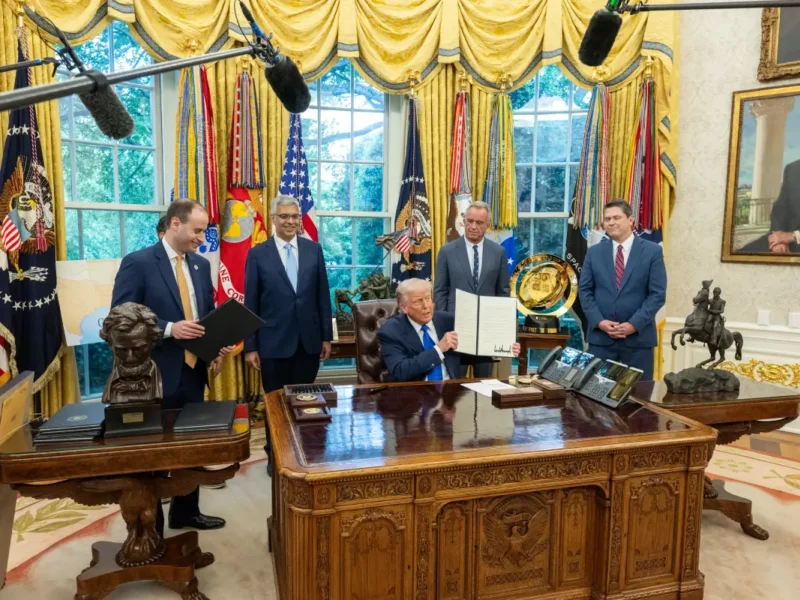
Jay Bhattacharya Supports Childhood Vaccinations, Even Measles
Photo: Stanford University
India-West News Desk
WASHINGTON, DC – Dr. Jay Bhattacharya, the nominee to lead the National Institutes of Health (NIH), pledged to prioritize chronic diseases, enhance research integrity, and foster scientific debate during his Senate confirmation hearing.
Bhattacharya, a Stanford University professor and outspoken critic of COVID-19 lockdowns, is widely expected to be confirmed. He outlined five key priorities, including advancing biomedical research and regulating high-risk studies. Reuters reported that Bhattacharya emphasized the urgency of addressing rising rates of obesity, diabetes, and other chronic illnesses, stating, “American health is going backwards.”
His testimony also touched on the contentious issue of vaccines, an area of concern as the nation faces a growing measles outbreak in Texas. The outbreak has already resulted in one unvaccinated child’s death and nearly 20 hospitalizations, posing an early challenge for Bhattacharya’s likely future boss, Secretary of Health and Human Services Robert F. Kennedy Jr., a known vaccine skeptic.
During the hearing, Senator Bill Cassidy, a Republican physician from Louisiana, pressed Bhattacharya on his views regarding a potential link between childhood vaccinations and autism. Bhattacharya responded, “I don’t generally believe there is a link, based on my reading of the literature. But we do have a sharp rise in autism rates, and I don’t think any scientist really knows the cause of it.” Cassidy pushed back, stressing that extensive studies have repeatedly debunked the alleged connection between the measles, mumps, and rubella (MMR) vaccine and autism. “If we keep plowing over ground that has already been plowed, we waste limited resources,” Cassidy asserted, according to Reuters.
Bhattacharya firmly stated his support for childhood vaccinations, particularly for measles, which remains preventable through immunization. “It’s a tragedy that a child would die from a vaccine-preventable disease,” he said. Reuters highlighted that his stance could put him at odds with Kennedy, whose views on vaccines have been widely criticized by the medical community.
Once confirmed, Bhattacharya will oversee NIH’s nearly $50 billion budget and thousands of scientific initiatives. He is set to face immediate challenges, including legal battles over Trump’s proposed cuts to federal research funding. His leadership will also be closely watched due to his controversial past, including his role in the 2020 Great Barrington Declaration, which opposed widespread lockdowns and advocated “focused protection” for the vulnerable.
Democratic Senator Patty Murray of Washington questioned Bhattacharya on the administration’s push to cap NIH grant overhead costs at 15%, a move that could significantly impact institutions like Stanford. “Stanford, your own institution, would lose about $160 million annually,” Murray pointed out.
As Bhattacharya prepares to take the helm at NIH, his approach to chronic disease, vaccine policies, and research funding will be under intense scrutiny. Reuters emphasized that his tenure could redefine the agency’s priorities in a politically charged health landscape.



